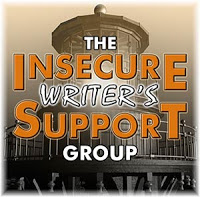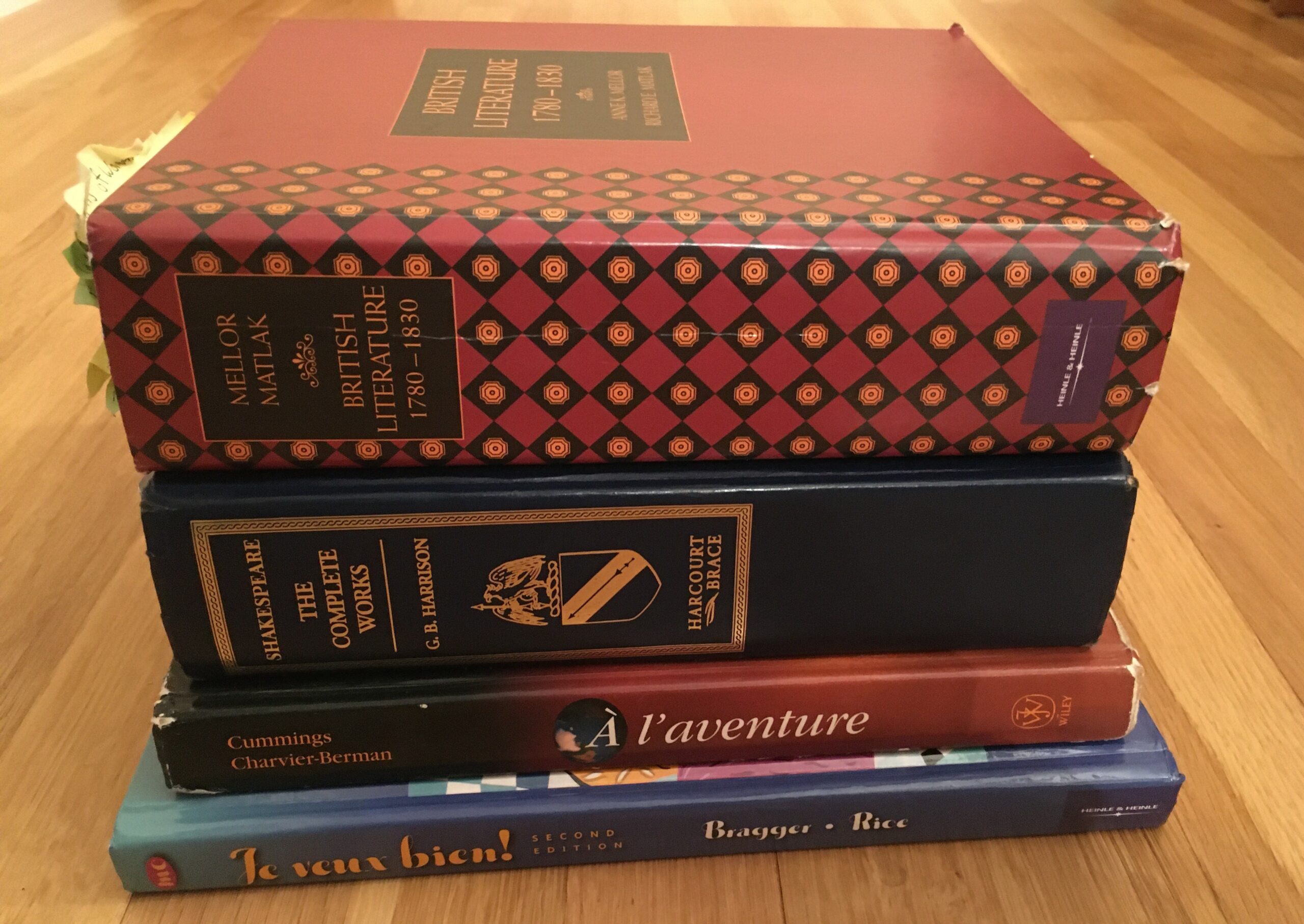Insecure Writers Want to Know
The power of language. I don’t care for profanity. Never did. Never will. I don’t like reading it, hearing it in movies, or seeing it printed across a screen. I just feel there are better adjectives, better dialogues, better methods to show anger or characterization than writing profanity.
If you are talking about including specific dialect in the story, from all I’ve been reading on craft, the experts tell authors not to do it. It sounds cumbersome. It sounds clumsy. It can be seen as insulting in today’s world.
If it’s a foreign language you wish to include in your story, writing experts say use it only if it’s truly necessary to the story. And Victoria adds: make sure the reader knows what the words mean. Did I ever mention I had trouble learning French in college? Well, I did. I’m an English major for a reason.
Have you read differently on using dialect or foreign language in story? Please share your insight.
As for drawing a line on which topics to write about, I like to write about what I know, what I’ve lived, and what I’ve experienced. I leave the emotional topics, the controversial topics to the more experienced writer. Oh I have my opinions, my morals, but I place them in the context of my stories. Not blatantly, not pontifically. How about you?

As an update on my college memoir:
The verdict’s in. This should be a story about parenting my learning-disabled daughter through her education alongside my own journey through college. My daughter was the impetus for me to find the courage to attend college.
Please offer any insight on my theme, point, and title. How does the elevator pitch sound? I value your thoughts. Thanks!
Theme: Perseverance counts
Point: Perseverance and determination make success happen, not how a person learns.
Working new title: Making Success Happen: The Power of Perseverance
50 wd elevator pitch:
Victoria was told she wouldn’t succeed in college. And she believed it. But when her learning-disabled daughter is told the same thing, Victoria refuses to allow her to be trapped in that same belief. Victoria knew it was time to prove these people wrong. It was time to attempt college.
It will be interesting to see how you’ve tackled this month’s question. It’s wonderful having a topic to share our thoughts on each month. I am extremely thankful for all of you for being my sounding board and advisors in this writing and publishing journey.
Thanks for visiting my new website! Please be sure to stop by again.
This post was written for the Insecure Writer’s Support Group. I’d like to thank our co-hosts for October: Jemima Pitt, J Lenni Dorner, Cathrina Constantine, Ronel Janse van Vuuren, and Mary Aalgaard! Please visit them if you can. Our group posts on the first Wednesday of every month. To join us, or learn more about the group, click HERE.


This post is so in line with what I’m blogging about these days. Perseverance and adapting to life changes is at the heart of my next book. When I read your post this morning, I felt as if more stars had aligned. Thanks for this one today.
My pleasure, Lee. I think “perseverance” is a very universal theme. I just finished reading your novel The Princess of Las Pulgas and believe Carlie and her whole family needed perseverance to survive the loss they were working through.
Thanks so much for your comment at Adventures in Writing. Have a beautiful weekend!
Then there are fantasy and science fiction books with all sorts of made up words nobody knows! I tried to put a good description with every new word so readers knew what I meant.
Placing description with new words is a great idea, Alex. Remember Battlestar Galactica? I was just dating my husband when it was on TV, and we would watch it together. They used a few what I would call “futuristic” words. As readers and listeners [movie/TV], understanding meaning is all in the context of what’s happening in the story.
It’s always a pleasure seeing you here at Adventures in Writing. Thanks so much for your note. Enjoy your weekend!
I agree with Alex on all the made up words in fantasy stories and use them sometimes in mine too. Congrats on figuring out the focus of your memior.
Thank you, Natalie. Here’s hoping I finally go the focus correct in the memoir.
I was telling Alex that made up words are fine so long as the reader or watcher [of movies] understand the context of the word in the story.
Always a pleasure seeing you here at Adventures in Writing. Thanks so much for your comment. Enjoy your weekend!
I thought your elevator pitch was great Victoria. It made me feel- she believed the narrative when it was about herself but not when it came to her daughter. And then both of them triumphed. Fabulous. Happy IWSG day.
Hello and welcome to Adventures in Writing, Kalpana! I’m so glad you stopped by.
Thank you so much for sharing your insight into my elevator pitch. It means so much to me. Truly appreciate it! Enjoy your weekend!
I think you have to consider your reader when you write using made-up words or dialect. Using style to produce a character’s voice is important, but overuse of strangely spelled words and apostrophes get in the way of the narrative, and can be hard to read. Many sff readers dislike made up names they can’t pronounce like Kwk’thnnath (which I made up and couldn’t make it bad enough!)
Anyway, that’s my 2p, thanks for an interesting post.
Jemima
I always appreciate everyone’s insight here at Adventures in Writing, Jemima. That’s how I learn, and I learn something new each day.
I agree that strange letters and apostrophes make it difficult for readers to understand how to pronounce the word and thereby can take them out of the story. Something writers never want to happen.
Thanks so much for your comment. Enjoy your weekend!
I’m with you on swearing. Especially the f-bomb. I don’t know why people love that word so much. Anyway, I think most writing rules can be broken if you do it well, but I agree you should always make sure the reader can figure out what you’re talking about. I used Maori words in my last scifi novel and made sure they were obvious in context or I explained them.
Hello and welcome to Adventures in Writing, Charity! I’m so glad you stopped by.
I hate the f-bomb! Like you say, as long as the word meaning is obvious in context, the reader remains in the story.
Thanks so much for stopping by. Please stop by again! Enjoy your weekend!
When a like situation defined your early life and is put in the way of your own child’s desires to succeed, a parent will try to help their child through that situation. And in doing so, will find the way to fulfill your own desires.
Hello and welcome to Adventures in Writing, Bill! I’m so glad you stopped by.
Thank you so much for sharing this insight! I think you are right. Parents will do anything to help their kids. At least I know I will.
Thanks again for leaving a comment. Have a beautiful weekend!
I also find it hard to use my personal opinions in my writing. Sometimes they influence a character’s moral beliefs, but not on purpose.
Hello and welcome to Adventures in Writing, Steph! I’m so glad you stopped by.
I’m sure my personal opinions influence my characters, and like you, I’m not doing it on purpose.
Thanks again for leaving a comment. Have a beautiful weekend!
“and a little child shall lead” had so many meanings and I think you’ve found one, Victoria. I, too, experienced many challenges and successes fueled by my desire to make a better world for my daughter. You’ve got this nailed.
Wow! Thanks so much, Lee! I hope so. Always appreciate your insight here at Adventures in Writing. Have a beautiful weekend!